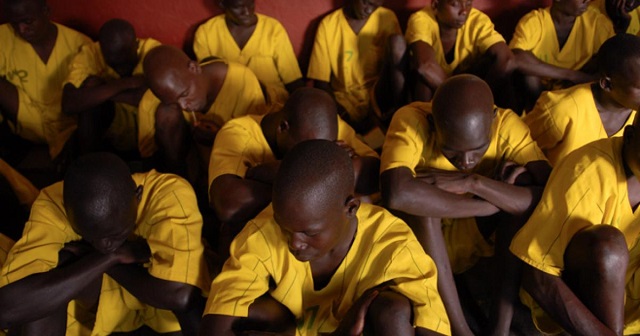
Kampala, Uganda | THE INDEPENDENT | Uganda Prisons Services-UPS is struggling to deliver effective rehabilitation services to inmates due to the limited number of social workers. Social workers conduct individual counseling sessions with inmates and rehabilitate offenders such that they don’t engage in any form of criminal activity when they regain their freedom.
They also help families to remain together for instance by helping mothers with babies to manage them while in prison. Elizabeth Nanfuka, the Commissioner for Social Rehabilitation and Reintegration in Uganda Prison Services, says that there are currently 56 social workers in prisons serving 68,261 inmates in different prisons countrywide.
Nafuka was speaking on the sideline of the training for prison officers on the rehabilitation of perpetrators of gender-based violence at Hotel Africana. She says that the same social workers also serve prisons staff comprising 12,633 prison officers. She says that Uganda prisons need about 500 social workers to serve the current prison population better.
Currently, Nanfuka says that they are using medical workers and civil society organizations to fill the gap by offering free counseling services to the inmates.
Angela Nakafeero, the Commissioner for Gender and Women Affairs in the Ministry of Gender, Labor, and Social Development, says that plans are underway to liaise with the prison services to train some prison officers in counseling such that they can offer the required services to the inmate.
She says the ministry shall integrate prisons in several of their rehabilitation campaigns such that by the time offenders are free to leave prison, they are changed people who can be safely reintegrated into the public.
Nakafeero says that although Uganda has enacted good laws to empower women and avert gender-based violence, the vice is still prevalent and escalated during the COVID-19 lockdown, a trend that is of concern.
She blames the vice on the patriarchal nature of society where men, who are the largest perpetrators of gender-based violence are given a lot of power, privileges, and authority, which they often misuse and abuse the womenfolk and children in their society.
Nakafeero suggests that part of the solution, therefore, is to not only punish the perpetrators but enhance rehabilitation efforts for offenders to reform. She also noted the need to continue carrying out sensitization campaigns to empower women and children to report gender-based violence and for the men to change.
Currently, the Ministry of Gender is working with the Regional Training facility, an arm of the International Conference on the Great Lakes Region-ICGLR to offer prison social workers and medical personnel refresher training on how to rehabilitate perpetrators of gender-based violence.
The ICGLR is implementing a new model on gender-based violence where the ministry of Gender, Civil Society, and Prisons Services work together to ensure that perpetrators are rehabilitated and safely integrated back into communities.
*****
URN
 The Independent Uganda: You get the Truth we Pay the Price
The Independent Uganda: You get the Truth we Pay the Price



